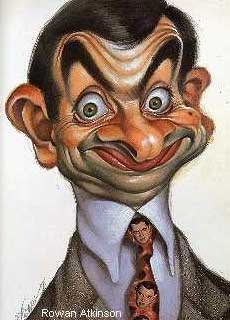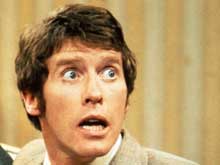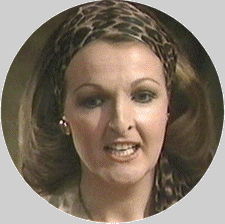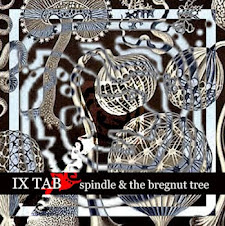
This kind of thing has been bothering me for ages and it's only now, after watching bits of the latest Channel 5 list show: 50 greatest comedy characters (or something similar) that my thoughts are starting to congeal...
Apologies if all this seems rather pre-formed and part-baked. It probably needs a grat deal more thought and I'll probably return to this but for now I thought I'd just spew...
It concerns the word 'character' and, especially, the differences in playing a character and playing yourself.
But mostly it's harking back to the terrible problems I have with the authenticity/inauthenticity divide.
Is there one, which other people understand that I've somehow missed? A little slice of lifelong learning that I've accidentally skived? Or do I just have a touch of Autism around the gills?
You see, on the list shows there were several 'characters' that I would concur are, indeed, characters - they are clearly not the same personalities as the individuals who play them: Rowan Atkinson may be a bit of Mr Bean and a touch of BlackAdder but he is neither; they are separate to him and properly inauthentic, not matter how much he clings to them during interviews.
----- Yeah, for a while he seemed indivisible from Bean but I'm assured this is not Rowan, by people who have met him (and I'm taking their word for it, just this once) -----
But also on the list were others who seemed to have a foot in both camps: they were playing a character which was their own character, albiet slightly amplified. I'm thinking Tony Hancock here, who seems to play Tony Hancock like I would play me at an interview; the same but slightly hyperreal, just so people wouldn't miss something.
The whole programme seemed problematic. Sometimes they were portraying genuinely designed and drawn (written) characters, other times they'd rely on real people, acting in ways which were entirely consistent with their own personality. These people may well be funny but are they comedy characters, in the way Frank Spencer is distinct from Michael Crawford.

And was Michael Crawford always not Frank Spencer or was there a point where he might have been? Did he become not Frank Spencer after the fame and fortune of Some Mothers Do Ave Em?
"The creation of something new is not accomplished by the intellect, but by the play instinct acting from inner necessity. The creative mind plays with the objects it loves." - Carl Gustav Jung
"Men acquire a particular quality by constantly acting a particular way. You become just by performing just actions, temperate by performing temperate actions, brave by performing brave actions." - Aristotle
Did Michael Crawford aquire the elements of Michael Crawford by going through Frank Spencer?
Kenny Everett came on, doing Cupid Stunt. Here, it was surely clear: Kenny was Kenny, Cupid was created by Kenny. But I sensed all was not as it seemed. The talking heads seemed to be implying that Cupid may have been more of the real Kenny than the real Kenny was allowed to be. Cupid was saying things that Kenny wanted to but couldn't. Kenny's character was immersed in Cupid not supplanted by it.

Could this be (a part of) the real Kenny? And could Kenny be only a small part of the real Kenny?
"I regard the theatre as the greatest of all art forms, the most immediate way in which a human being can share with another the sense of what it is to be a human being..." - Oscar Wilde
And this wasn't the worst part. Most of the writers questioned suggested that their characters came not out of an act of creation but from (mere) observation; these people existed out there in the real world. They didn't need to be invented.... which spun me off on a whole new tangent.
I mean, what's the point of a comedy which is not created? Or rather, what's the art in a comedy not created? Take Little Britain: why laugh at people pretending to be mentally ill when we could just laugh at the mentally ill themselves? Least they'd get paid that way, make millions out of merchandising and so on if they could get force themselves to be just a little amplified?
Why let tossers like the Little Britain creators into the party? Let's hijack the Happy Bus and go straight to source. You're telling me that there's all those thousands of mentalists out there and not a few who might be quyite funny for a series of two. Of course, we'd all get bored in the end but we're like that with the scripted stuff too aren't we?
And then came Margo from The Good Life.

Very funny. Yes. But when you look at what she was actually saying it's not too far off what people like her were actually saying back in the 1950s; which made me then think that maybe the essence of comedy is a kind of retroscending, a dazzling simulcra, an anachronism which people find funny because, dimly, they remember that it once really was like that.
"Acting deals with very delicate emotions. It is not putting up a mask. Each time an actor acts he does not hide; he exposes himself." - Rodney Dangerfield
Nostalgia is undoubtedly funny but it seems a cheap way to entertain.
And if the 1950s language was funny in the 1970s, what is funny now? The 1980s? The 70s? If we started adopting the syntax, grammar, vocabulary of another decade would that in itself make us funnier?
I'm going to look into this further, there's Presentation Of Self issues, I'd imagine and all manner of theory that I'm probably emulating but I'm going to start digging deeper into this because it's been bugging me for too long now...
But before all that boring stuff, before all the reading I'm going to start experimenting with soundtracks from 50s commercials, putting them over 80s adverts and seeing if, indeed, this is comedy. Will it be funny regardless of the words?
I'm gonna try and suck the literature out of comedy without anyone noticing.





















8 comments:
There is a strand of 'comedy' that is based on 'difference'...one example of that is, as you say, the 'oh look how we were back then (as compared w/ now)'...a sense of , I dunno, dumb relief that we're 'okay' (socially/culturally/whatever) now, but we weren't in the 70s/50s/etc...the laugh is the expression of relief that we're not like that any more...
Other (standard)comedy 'differences' are based round race/mental health/sexual orientation...
I dunno about you, but I don't find that particularly funny, and not because I'm uber-PC, because I'm not. Of course people are different to each other, or that human beings change over time: big deal. Gosh, look at those big checked trousers we used to wear in 1974: don't they look daft? Well, actually, I wouldn't mind a pair of those again...they'd be infinitely preferable to the Gap-spawned indentikit crap on sale in the high-street these days.
Everything is starting to look the same: books, films, TV programs, magazines...and I don't find that funny.
I'd find the jumbling up of adverts funny (or at least stilumating) because I like juxtapositioning things; it wakes my brain up, and I suspect it does yours too. But you've got the training of your profession, wh/ also allows you to be objective about something like that.
I'd be interested to hear what experiments you devise to track this.
Oh, and laughing at the mentally ill: Spike Milligan, anyone?
Brilliant post. I really enjoyed this.
I agree, difference isn't funny anymore because, well, there's so much of it about it's kinda wrapped around and turned into a homogenous pulpy mass.... or rathr a homognous non-pulpy mass... or mayb it nvr was funny (sms lik my eeeeeeeeeeeee ky is buggrd)...
it still bugs m that margo for xampl is not rally a commnt on hr time but a commnt on 20 years ago - redundant at best - ah e is back!!, just gave the keyboar a amn fine thrashing an... bugger!
i misse the spike milligan reference - before my time! - i he o the mental health thing as well?
Isn't reality TV just laughing at the mentally ill?
Weren't Barrymore and Les Dennis funnier as themselves?
Also, some consideration must be given to that very weird moment at the end of Mike Yarwood's show's, when he stopped doing impressions of Harold Wilson, turned to the camera and said 'and this is me' and then sang a song 'as himself'.....
"Isn't reality TV just laughing at the mentally ill?"
Yes, or people who aren't us...and therefore help make us feel better about ourselves. (ref: House of Tiny Tearaways/Wifeswap/etc: "Gawd, I may be a bad parent/spouse...but I'm not as bad as they are..."
Spike Milligan was a manic-depressive/bi-polar/whatever we're calling it this week. His comedy came from the manic hypercreative 'up' phase of his illness.
Yarwood had a breakdown/became an alcoholic....(poss. when he wasn't able to be other people any more?)
Interesting comment. I wonder if having too many different personalities and the dialectic which exists between what is real and what is a construct does cause mental illness. Do we really play a comic role because of illness? Or because of the interchange between the two characters? I've always thought that the greatest comic moments are full of extreme tragedy and pathos. In the Bakhtinian world, everything is turned upside down. I have always laughed at everyhing. Laughed and laughed and laughed. You'd have to have a heart of stone not to laugh at some of the things I've laughed at. But, there's always the other side of the 'character' isn't there? I suppose it comes back to the tears of the clown.
"I wonder if having too many different personalities and the dialectic which exists between what is real and what is a construct does cause mental illness...." Very probably, but I'll leave that one to our resident experts.
Comedy sometimes feels like an escape from The Now, from ourselves. Laughing as an involuntary distractive tic, maybe...but that's hard to reconcile w/ our evolutionary history as hunter-gatherers...I can't see a selective advantage in what is effectively a loss of focus or a disconection from Now...
Yes, I'm not sure if the loss of focus helps. It only lets us come back to the shocking, terrible truth that lies within. The horrible Ego. The horrible reality. It seems to get harder each time you stare it in the face.
Post a Comment